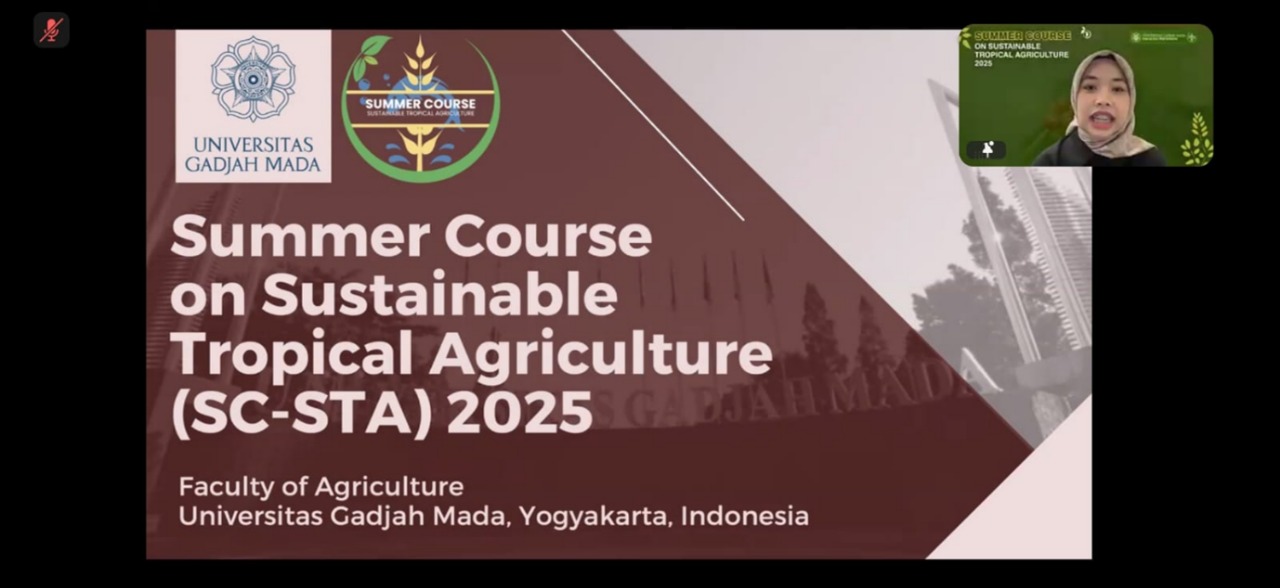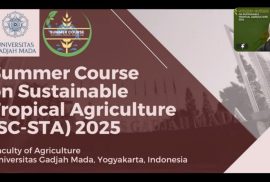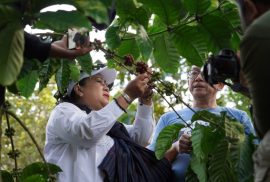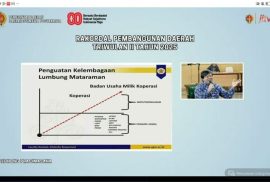
The Faculty of Agriculture at Universitas Gadjah Mada (UGM) officially launched the 2025 Summer Course on Sustainable Tropical Agriculture with an online pre-course session held via Zoom on Friday, July 4, 2025. This session marked the beginning of the program, introducing participants to coffee cultivation and field experiences under the theme “The Journey of Coffee from Seed to Cup.”
The pre-course was attended by participants from diverse academic backgrounds, both domestic and international. It began with an overview of the program, which will run for over a month, from July 4 to August 8, 2025. The session also introduced the instructors and guest experts who will lead both the online classes and offline field trips. The teaching team includes Instructors, Teaching Assistants (TAs), and Experts with extensive experience in sustainable tropical agriculture.





